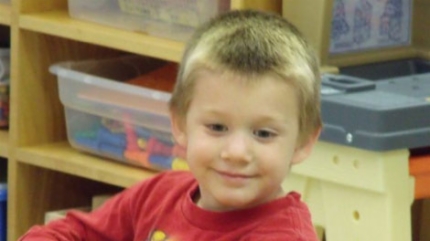Victims with a genetic variant have more emotional problems.
There’s nothing fair about getting bullied at school. To add insult to injury, a new study finds that bullied kids who happen to have inherited one form of a stress-related gene develop the most emotional problems.
Symptoms of anxiety, depression and social withdrawal appeared most often in regularly bullied kids who possessed two copies of a short version of the 5-HTT gene, says a team led by psychologist Karen Sugden of Duke University in Durham, N.C.
One-third of bullied children who had two shorter copies of the gene displayed emotional problems severe enough to merit mental health treatment, the researchers say. That figure fell to 29 percent for regularly bullied kids carrying one short copy of the gene and 15 percent for those with two long copies.
By tracking pairs of twins, Sugden and her colleagues ruled out the possibility that pre-existing emotional problems led genetically vulnerable children to be victimized by bullies. In cases where each twin carried two short copies of the 5-HTT gene but only one got repeatedly bullied, emotional difficulties were observed only in the bullied twin, the researchers report in a paper scheduled to appear in the Journal of the American Academy of Child & Adolescent Psychiatry.
The experiment can’t directly pin the kids’ emotional problems on the gene-bullying combo, “but it is about as close as it is possible to get, given that it’s not ethical to bully a child deliberately for research purposes,” says Duke psychologist and study coauthor Terrie Moffitt.
Other evidence suggests that the short form of the gene, which is involved in transporting the chemical serotonin in the brain, intensifies emotional reactions to various kinds of stress, possibly by triggering the release of high levels of stress hormones, remarks Stanford University psychologist Ian Gotlib, who was not part of the study team.
Gotlib’s team has reported that teenage girls who were socially excluded or lied about by peers showed signs of depression, but only if they had two copies of the short 5-HTT gene. And medical interns with at least one copy of the critical gene variant are particularly prone to depression, a group led by psychiatrist Srijan Sen of the University of Michigan in Ann Arbor has found.
Other studies have failed to link the serotonin transporter gene to stress-related emotional problems (SN: 7/18/09, p. 10). But most of those studies collected data via phone or questionnaires, not in thorough interviews, Moffitt says.
She and her colleagues monitored 1,116 pairs of same-sex twins age 5 to 12 in England and Wales. Identical twins made up just over half of the sample.
Parents and teachers assessed children’s emotional condition at ages 5, 7, 10 and 12. At the final assessment, 230 kids told experimenters that they had been bullied “a lot” by other children and described what had happened.
Frequent bullying victims with two copies of the short gene displayed emotional problems by age 12. They accumulated an average of six or seven new symptoms of anxiety, depression and social withdrawal during the study.
Children who had one long and one short 5-HTT gene had fewer emotional problems than kids with two short copies. Bullied children with two long genes exhibited relatively few emotional difficulties, but still slightly more than never-bullied or occasionally bullied peers.
Emotional problems stayed at low levels and tended to decline during the study for children who never or rarely got bullied, regardless of their genetic makeup.
School programs to reduce bullying probably provide the greatest emotional benefits to genetically vulnerable children, Moffitt says. But it’s too early to say whether this research will lead to targeting genetically vulnerable children for specific school interventions, she adds.

















